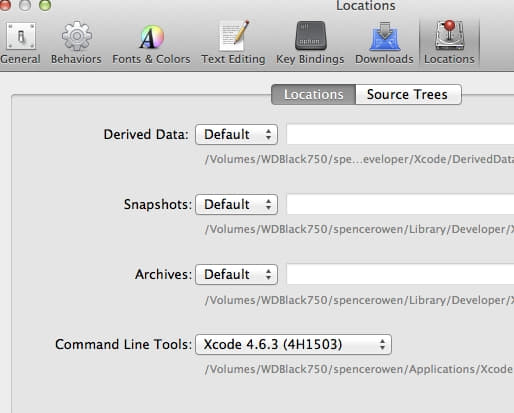

The tools you need to work with these programming environments comes with the suite, along with much more. Some of the programming languages supported by the Xcode Command Line tools include C, Cpp, Python, Ruby and more. These Unix-based tools include compilers, linkers, and version control utilities. What’s Included In the Installation?ĭevelopers often rely on tools that run on the command line, in the Terminal application. Read along as I outline several options for getting your Mac ready for software development. For these, you need to know how to install the Xcode Command Line tools. If you’re looking to begin software development on a Mac, though, there are programming languages and utilities that aren’t installed in macOS by default. Its Unix underpinnings make it a terrific platform for software development in Python, Ruby and more. Per discussion on the Homebrew GitHub issue above, it is unusual for a new macOS SDK not to be realised simultaneously with the O/S but it would be reasonable to expect that very soon.Many developers of all sorts enjoy coding on Macs. This is slightly less convenient than a Homebrew install as you would have to manually set up a launchctl definition if you want to start/stop mongod as a service, however you can always move to a brew install later. Related discussion: macOS 13 (Ventura) and gcc-12 Īs a workaround (if you don’t want to install RCs), you can also get MongoDB binaries from the MongoDB Downloads page.

Xcode 14.1 is still at the release candidate stage so you will either have to wait for the GA release or download a release candidate from Apple’s developer download page if you want to use Homebrew. See: Installation - Homebrew Documentation. This error message is coming from Homebrew: you need to update Xcode (or the Xcode Command Line Tools) after a major O/S upgrade. Please update to Xcode 14.1 (or delete it). Error: Your Xcode (14.0.1) is too outdated.


 0 kommentar(er)
0 kommentar(er)
